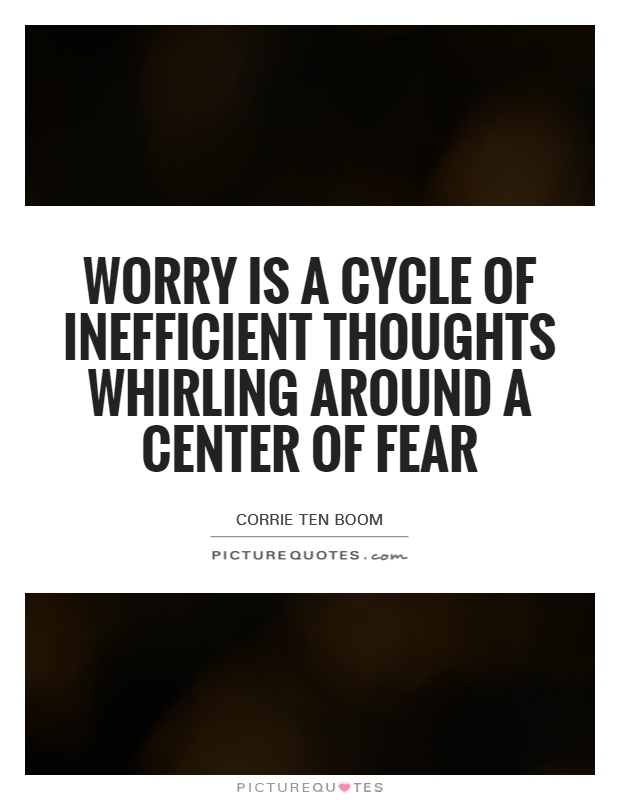Worry is a cycle of inefficient thoughts whirling around a center of fear

Worry is a cycle of inefficient thoughts whirling around a center of fear
Corrie ten Boom, a Dutch Christian who helped many Jews escape the Holocaust during World War II, understood the destructive nature of worry all too well. She experienced firsthand the horrors of fear and anxiety as she risked her life to save others from the Nazis. In her book, "The Hiding Place," she writes about how worry is a cycle of inefficient thoughts whirling around a center of fear.Worry is a common human experience, but for Corrie ten Boom, it was a particularly dangerous trap. As she and her family hid Jews in their home, they faced constant danger and uncertainty. The fear of being discovered by the Nazis was always present, and the worry of what might happen weighed heavily on their minds. Corrie realized that worry was not only unproductive, but it also fed into the cycle of fear that threatened to consume them.
In the midst of such dire circumstances, Corrie learned to trust in God and let go of her worries. She understood that worrying only served to distract her from the task at hand and hinder her ability to make clear decisions. Instead of allowing fear to control her thoughts, she focused on taking action and doing what she could to help those in need.
Corrie ten Boom's story is a powerful reminder of the destructive nature of worry. She saw firsthand how worry can paralyze us and prevent us from living fully in the present moment. By recognizing worry for what it is – a cycle of inefficient thoughts whirling around a center of fear – we can begin to break free from its grip and live with courage and faith.












 Friendship Quotes
Friendship Quotes Love Quotes
Love Quotes Life Quotes
Life Quotes Funny Quotes
Funny Quotes Motivational Quotes
Motivational Quotes Inspirational Quotes
Inspirational Quotes